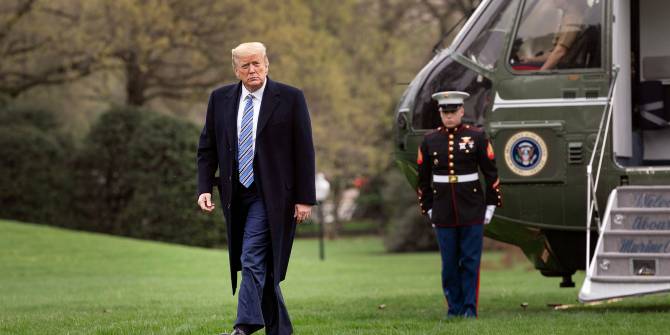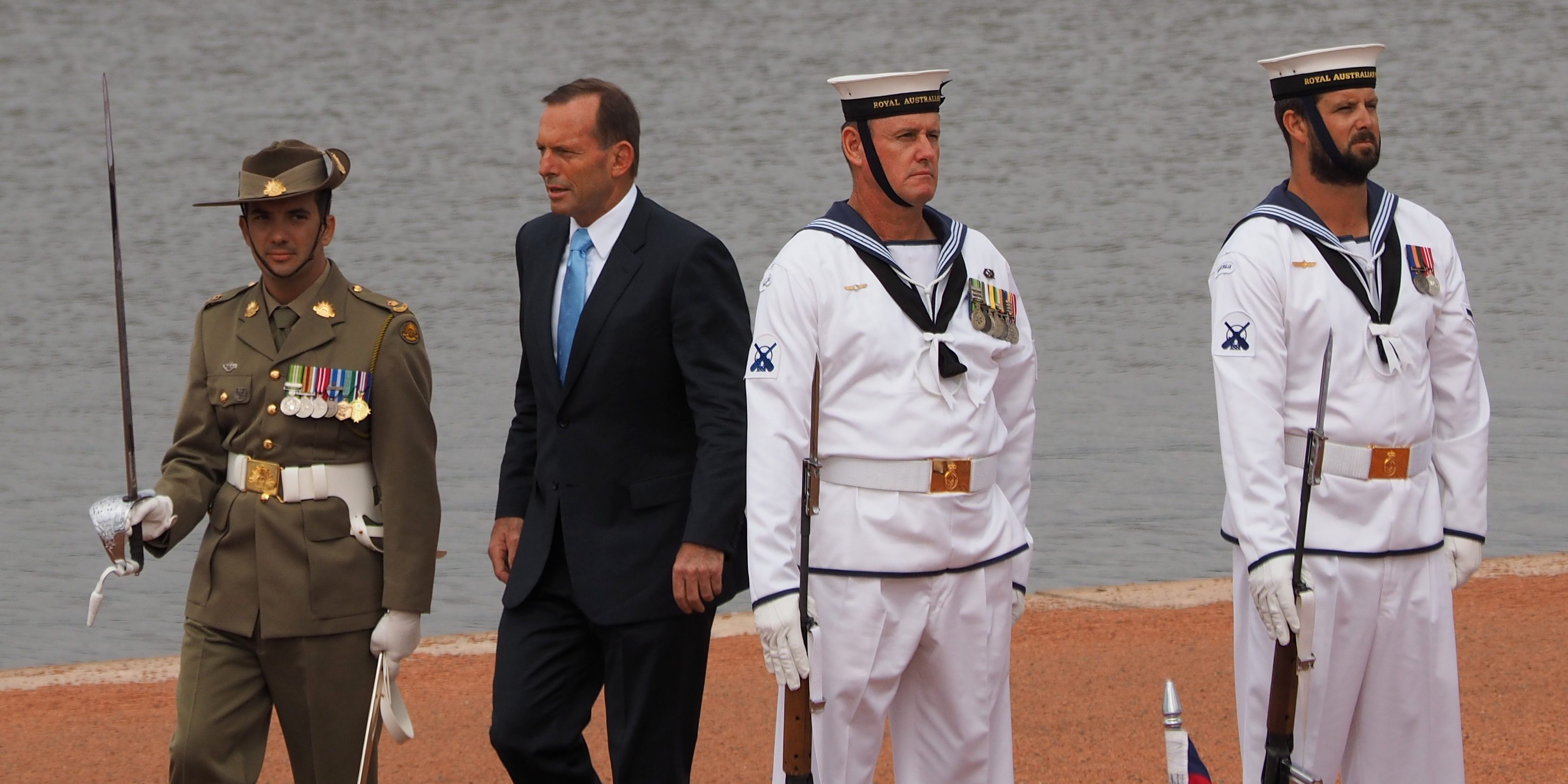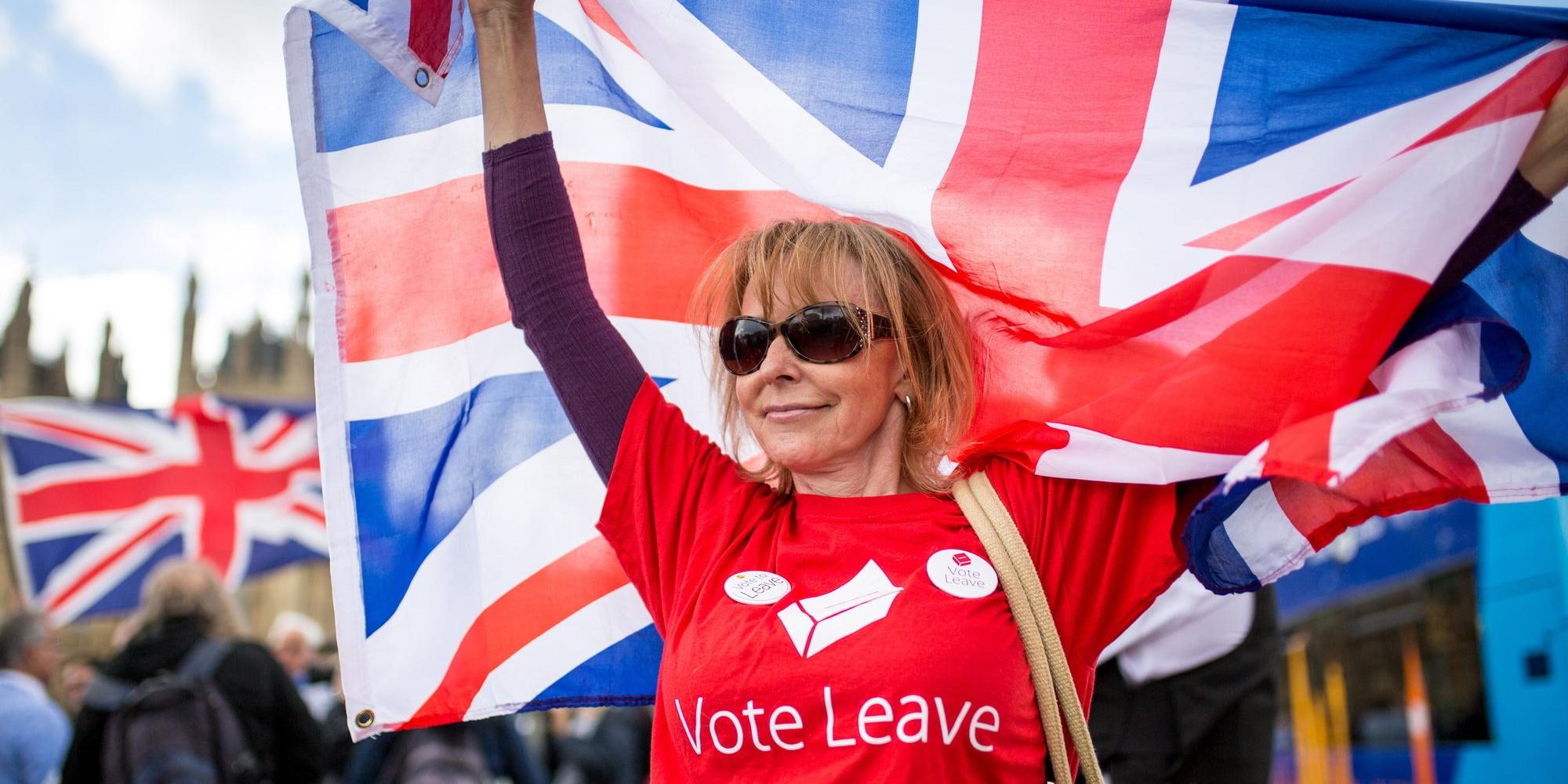‘Going WTO’ in a no-deal Brexit means that Britain would rely on the rules-based World Trade Organisation system. But the WTO is in poor shape, partly due to tensions between the US and China. In the first of a series of posts, Steve Woolcock (LSE) looks at why the organisation has become weakened.
Even before the coronavirus pandemic, the world trading system was not in great shape. Trade protection was averted in the aftermath of the 2008 financial crisis thanks to a shared commitment to resist protectionist responses on the part of the major trading powers. But over time, protectionist measures have grown. After years of trying, the Doha Development Agenda (DDA) in the World Trade Organisation (WTO) negotiations effectively came to an end in around 2014 with no real progress. Then the incoming Trump administration initiated an aggressive, unilateral trade policy in an attempt to force its trading partners to make concessions.

The pandemic is on track to create an economic recession on a par with that of the 1930s, when beggar-thy-neighbour policies including trade protectionism brought about a collapse of the trading system. To avert a similar outcome, the multilateral, rules-based trading system needs to become more resilient.
A multilateral system rests on the World Trade Organisation (WTO), which is in turn supported by three pillars: rules to provide the framework for trade and investment; a mechanism for resolving disputes; and procedures for monitoring the implementation of the core principles and rules. The WTO – and the GATT before it – have in the past sought to keep pace with developments in the world economy by concluding large multilateral rounds of reciprocal concessions. The DDA was the last such round, and the first one to fail since 1945. It failed in large part to the difficulty of accommodating economies at different levels of development. Led by the United States, in an effort to prolong its ability to shape trade rules, and with the support of other OECD and partial support of some non-OECD economies including China, there has been a shift to a more flexible, plurilateral approach.
Plurilateral agreements are negotiated between like-minded countries or economies that tend to be at similar levels of development and on a specific area of rule making on which there is broad measure of support. At the WTO Ministerial Conference in Buenos Aires in November 2017 a list of Joint Initiative Studies was drawn up for plurilateral negotiations on topics from e-commerce to investment facilitation, environmental goods and fishing subsidies. But there is opposition from developing countries on the grounds that these undermine multilateralism and serve the interests of the developed or power economies and not those of development, which was supposed to have been the focus of the DDA.
With no substantial progress on rule making since the end of the Uruguay Round in the early 1990s, when the WTO was fashioned from the GATT, tensions have grown over how to interpret the rules that do exist. An innovation in the WTO was the strengthening of dispute settlement procedures. This included the establishment of an Appellate Body and other means to ensure that disputes over how the rules should be applied were resolved by an independent, judicial process, rather than by whichever government had the most economic muscle. As the rule making lagged developments in the world economy, the dispute settlement pillar has had to carry more of the load of maintaining an open trading system. The burden is also increased when there are protectionist pressures and governments seek more autonomy to defend domestic interests.
This pillar of the system is now being violently shaken by the US, which has blocked all appointments to the Appellate Body on the grounds that the dispute settlement system – and the Appellate Body in particular – is doing more than is set out in the 1995 Understanding on Dispute Settlement. This US veto of new appointments effectively neuters the dispute settlement system because any party that has a decision go against it in the main panel process only needs to appeal the decision. With the Appellate Body out of action nothing happens and the system reverts to one in which trade disputes are resolved by threats or the use of power-based strategies. That clearly favours the more powerful economies and governments that are willing and able to wield this power – in other words, the USA and China and disadvantages everyone else.
The third pillar of the WTO has been less visible, but is no less important. This is the work done in the WTO to continuously monitor agreements and commitments. The credibility of any regime depends on the principles and standards on which agreements are based being seen to be effectively implemented. This is particularly the case for the rules on trade and investment that concern ‘behind the border’ questions, such as the provision of subsidies or the use of regulatory policies to distort competition. A ‘fair,’ rules-based trading system therefore relies on transparency in which WTO members report on their policies and make the notifications required to show compliance with the rules. In the WTO this reporting is monitored by a large number of specialist committees covering tariffs, customs procedures, technical regulations, food safety, subsidies to industry and agriculture, intellectual property, the regulation of services sectors, government contracts etc. The task of ensuring compliance with reporting and notification requirements in the WTO has been a long-standing challenge. But progress has been more difficult, as in the case of the other topics in the reform debate, because the increasingly tricky problem of how to accommodate countries at different levels of development.
A particular tension is how to accommodate China. There are greater demands for transparency from China because of the scale and thus impact of any national policy. This is particularly the case for subsidies, support for state-owned enterprises and its implementation of WTO rules on intellectual property right protection. For its part, China sees these demands as part of an attempt to challenge its own model of development. Developing countries in general argue that they do not have the resources for costly reporting.
Discussion of WTO reform is longstanding, but there is now greater urgency thanks to the crisis precipitated by US actions to block appointments to the Appellate Body. The hope, or expectation, was that some progress could be made at the next WTO Ministerial Meeting in Kazakhstan in June 2020. The coronavirus pandemic has resulted in the cancellation of this summit, but made the need to strengthen the WTO even more urgent. In the post-1945 period the existence of the GATT and the WTO have helped to avoid a repeat of a cycle of protectionism. This was evident after the 2008 financial crisis. Today we are faced with an equally serious crisis – but it comes at a time when the institutional framework for cooperation in the shape of the WTO faces unprecedented challenges.
Over recent months students studying for the LSE Masters in International Political Economy have conducted an extensive simulation of the WTO reform debate. This is the first of a series of posts informed by these discussions.
This post represents the views of the author and not those of the Brexit blog, nor the LSE.






“DEVELOPING COUNTRIES AND ASEAN : FAIR ACCESS TO COVID -19 MEDICINE FOR PUBLIC HEALTH”
The Article on WTO above by Steve Woolcock (Associate Professor of International Relations at the London School of Economics) is REVEALING in many commercial senses.
From Asia-pacific and ASEAN region perspective, there is an urgent need to re-look and see how present and future FTAs(inclding bilateral agreements) can be utilised to benefit national interest such as ACCESS to Covid-19 related medicine which are protected by patent, under R&D or otherwise.
Most of the trade treaties championed by World Trade Organisation (‘WTO’) only placed health as an exception to trade rules although acknowledging that health is a legitimate policy goal.
It allows member states to introduce health related policy measures but subjected to many limiting legal conditions.
In a WTO Report, it is conceded that ‘health concerns relating to trade agreements have tended to focus on two areas: the protection of multinational intellectual property rights (IPRS), and the implications of access to essential medicines; and the privatization of health care case and health related services.
On a similar plane, the RTAs and BTAs championed by certain developed countries pay little importance to public health as the main pre-occupation is economic growth over other non economic issues. As a result, there is a widespread debate that by not placing giving public health at the same level or importance to trade, these agreements subjugates public health to the point that they pose risks to public health.
The agreements main preoccupations are onon reducing barriers to investment, creating investor protections even in an instance where national countries introduce domestic measures to regulate public health.
The agreements subjected national countries’ decision to the determination whether such measures are impeding trade policies on public procurement, investor protection and dispute settlement procedures may impact the ability or willingness of government to introduce new regulations or policies that protect health.
In summary, the IP mechanism within WTO system does not really endorse or encourage any flexible opening for discussion on the issue of access to Covid 19 medicine unless activated by national governments(member States).
There is an PUBLIC HEALTH concern and imperative to revamp the WTO current IP -related mechanism for fair ACCESS to medicine for DEVELOPING COUNTRIES within COVID -19 Pandemic.
……………………..
Jeong Chun P.
Consultant and Advocate
in Intellectual Property Intelligence (IPI)
he can be reached at jeongchunphuoc@gmail.com